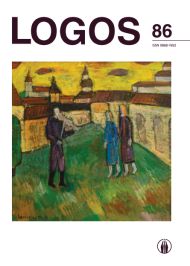Grigaliaus Nysiečio Homilijų Apie Palaiminimus Teologiniai Ir Antropologiniai Aspektai
Aspects of Theological Anthropology in Homilies on the Beatitudes by Gregory of Nyssa
Author(s): Saulius RumšasSubject(s): Anthropology, Metaphysics, Philosophy of Religion, Ontology
Published by: Visuomeninė organizacija »LOGOS«
Keywords: Gregory of Nyssa; theological anthropology; infinity of God; creation of man; fall of man;
Summary/Abstract: This article analyses aspects of theological anthropology in Homilies on the Beatitudes by Gregory of Nyssa (334–394). The main focus is the ontological expression of human conception and the origin of man. The topics analysed are: the importance of the conception of God in theological–anthropological discussion, the feebleness and splendour of human nature, the creation of man in God’s image and likeness, and the fall of man. The perspective of Homilies on the Beatitudes does reflect a human to be like a monad, separate and closed in itself. A human is a representative of much broader reality, and discussion about the human is influenced by the essential relationship of man with the divine. The reminder of creation brings a human back to the start of existence and at the same time turns his eyes towards the end. A human, created in likeness and image of God, already carries in himself a divine mark which makes him exceptional in the rest of the creation. This mark becomes a condition for a relationship and communication with the divine. Although the fall stains the image of God in a human and its outcomes are inherited by all humanity, nevertheless a human does not lose a possibility to come back to the initial innocence.
Journal: LOGOS - A Journal of Religion, Philosophy, Comparative Cultural Studies and Art
- Issue Year: 2016
- Issue No: 86
- Page Range: 36-46
- Page Count: 11
- Language: Lithuanian

